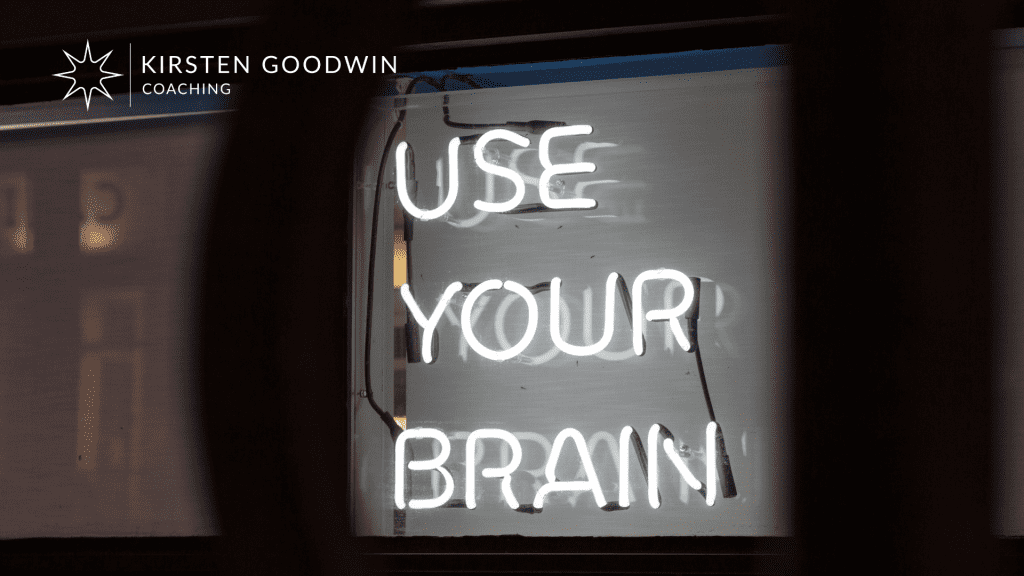Have you heard of the “growth mindset”?
And what about “neuroplasticity”?
These are two very powerful ideas based on neuroscience that can help you overcome Imposter Syndrome, and transform that inner critic into an internal cheerleader.
Read on to find out more! 😁
The Growth Mindset
The key conclusion of the growth mindset is that our skills and talents can be improved through effort.
ie they are not inborn and fixed in stone, but can be changed
This idea was defined by Professor Carol Dweck, after years of researching what made some students more successful than others.
And it’s wonderfully liberating!
It means we are not stuck forever being “bad at maths” or “bad with spreadsheets”.
With a bit of study and application, we can change our skill level and become good at these things.
So at its essence, the growth mindset is exactly that, a “mindset” – ie a way of thinking, which we can choose to adopt.
However, it actually goes deeper than this.
The “growth mindset” idea mirrors the findings of neuroscience.
Neuroplasticity
It used to be thought that our brains were fixed, biologically.
They were pre-determined by our genes, and the brain we were born with was the brain we would die with.
Everything controlled by our brain – from our ability to think critically, to our capacity to learn languages, to our ability to undertake complex physical movement – was fixed, forever.
The first evidence that contradicted this dates from as early as 1793.
A Italian anatomist Michele Vicenzo Malacarne did lengthy experiments where he trained animals for years, then compared the brain of a trained animal with an animal of the same species that hadn’t had the training.
Through dissection, he found the part of the brain that relates to muscular activity (the cerebellum) was significantly larger in the animals who’d been trained.
But these findings were not taken further until the early 20th century.
Then the evidence that the brain could change its biological function slowly gathered:
- experiments on monkeys showed changes in their brain biology over time (Karl Lashley, 1923);
- research into stroke victims indicated a healthy part of the brain had taken over the function of some of the damaged part (Shepherd Ivory Franz, c.1902);
- and, my favourite, a study into the brains of London taxi drivers (in the pre-sat nav era of “the Knowledge), which showed evidence of changes in their hippocampus (the part of the brain responsible for memory) in comparison with controls (Eleanor Maguire, 1997).
By the 1960s the term “neural plasticity” had emerged.
Over the next forty years the research gathered pace.
And in 2016 one of the foremost scientists in this field received the Kavli Prize for Neuroscience “for the discovery of mechanisms that allow experience and neural activity to remodel brain function”.
It is clear: the brain’s biological make-up actually changes throughout your life, depending on your experiences and your thoughts.
And this is neuroplasticity!
When you think a thought, neural pathways fire in your brain.
The more often you think a thought, the more efficient these pathways become (the synapses literally move closer together).
Which means you are more likely to think this thought in the future.
An illustration of neuroplasticity
The best way to understand it is to imagine a field with two gates, one at either end.
As people walk between the gates, the grass is worn away – which means people are even more likely to take that path in the future.
But this also works in reverse:
if one of those gates is moved, people start creating a new path – and crucially, the grass regrows over the old path.
And that’s exactly what happens in the brain!
So what does this mean for your Imposter Syndrome?
When you have Imposter Syndrome, you will have developed strong neural pathways that are unhelpful to you:
😩 repetitive thought patterns that drag you down, or that powerful voice of that inner critic undermining you.
You weren’t born with these – you will have been born with an amazing inner confidence.
But through your life, you learned unhelpful ways of thinking and limiting beliefs that eventually mask that Naked Confidence, and develop into that Imposter Syndrome.
You didn’t do this deliberately:
❗️we internalise the authoritative voices we hear from a young age (you’re the “good girl”, you’re the academic one – ie to be loved you have to be successful; or “it’s got to be perfect or it’s not good enough” – there are so many voices that are unhelpful to us…)
❗️we will have responded to something the best way we knew how at the time, but then unfortunately that pattern has become fixed and outdated, but we can’t get rid of (like obsolete software on a computer that’s now slowing it down)
❗️and we might have experienced particular challenges, like being very obviously the odd one out in a context (eg a woman in a male-dominated environment), which piles on the pressure.
And thanks to the amazing power of neuroplasticity, you’ll unfortunately have become an expert at these terrible thoughts.
These will be your paths of least resistance that you go down so often, without even realising 😢
But remember:
1. Neuroplasticity works both ways
The terrible thoughts you have, your current path of least resistance that is dragging you down, can be changed!
Through consistent effort to focus your thoughts in the direction you want, the old unhelpful pathway will get weaker and is replaced by a more positive pathway, the one that takes you to your inner cheerleader 😁
Just like that the grass regrowing over that old path, while a new path is created somewhere else.
You can re-wire your brain 💪
2. It will get easier over time
As you start to learn something new – that new way of thinking, building that positive inner cheerleader – your brain will adapt to it.
So the hardest bit of learning something new is getting started – as you start building that new neural pathway.
So when you’re facing what feels like an uphill battle, to replace your inner critic with an inner cheerleader, be patient:
with consistent effort, it WILL get easier 😁
Conclusion
So it turns out the “growth mindset” is not just a mindset after all – it is a biological reality.
And we can learn how to harness that biological reality – the incredible power of neuroplasticity – not just to help us develop that growth mindset…
…but also to banish that undermining Imposter thinking, and to help us discover your Naked Confidence and build that inner cheerleader instead 😁💪
This isn’t always easy to do on our own!
It can be hard to get enough self-awareness to recognise the negative thoughts, or to find the tools that can help you change them quickly and easily into positive ones.
I can help 😊
To find out more, book an initial chat by emailing me or booking into my calendar here.
Wishing you a positive, productive and Nakedly Confident week! 😁🔥💪
with love 💖
Kirsten xx





